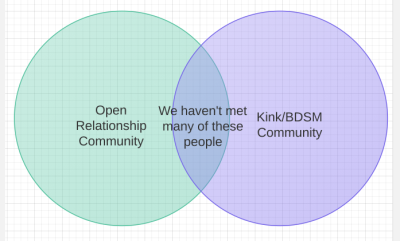I was pretty interested in this Psychology Today article, as well: Infidelity See, Infidelity Do.
Basically, Haltzman argues that people who want to stay monogamously married should hang out with other people who have the same desires. The premise is based on the effects of social networks. If you have friends that cheat, Haltzman argues you are more likely to cheat, because you will have a social network that supports bending the rules.
My qualms with this piece: Haltzman doesn’t actually cite any evidence that people who have friends who cheat are more likely to themselves. He mentions a sociology professor who has studied cheating behavior among professional athletes, and he mentions another study which showed that happily married couples who attend religious services are less likely to cheat; he extrapolates from these two studies that people who have friends who cheat or have cheated are more likely to cheat themselves. I can follow his logic, but I am not entirely convinced of his conclusions. (It just seems like there are many other factors at play, and I found his logic a bit simplistic. That being said, I think social network theory to be really fascinating, and it makes sense that “birds of a feather flock together.”)
A question I would pose to Haltzman: What if a monogamous couple has friends who are in an open relationship? Is it just a matter of time in this case as well that the monogamous couple try ethical nonmonogamy? I’m not sure what he would say.
I think his advice makes sense: if you are monogamous, and want to remain monogamous, then surround yourself with people who have similar values. It seems really similar to the idea of surrounding yourself with fitness enthusiasts if you are also into exercise, or of surrounding yourself with eco-conscious folks if you are as well. But, I also think it discounts the inevitability of change, and how wonderful it is to have a diverse and dynamic social network that may influence you to change. While cheating is dishonest, and not (in my opinion) a preferred nonmonogamous behavior, it can also open us up to new ways of relating, learning about ourselves, and growing.
